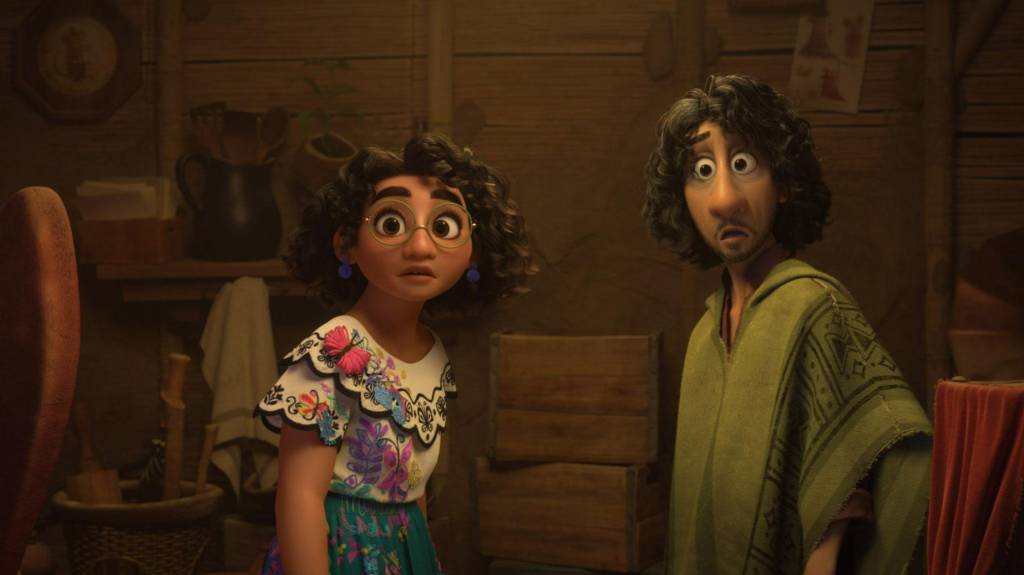By Rachit Raj
A lot has been said about Disney’s recent attempt to bring diversity to their characters and narratives. We are still early in these representations, but after Soul gave us Disney’s first black protagonist, Encanto gives us a Latina family which has been quickly recognized for its incredible representation. However, beyond that, this recent Disney film does something more, and quite incredibly. In Mirabel (voiced by the brilliant Stephanie Beatriz), we get a protagonist with a disability.
Now Mirabel may not seem like the most obvious character to lead the cause for the disabled community, but when understood inside the fabric of the film it breaths in, her disability emerges as a striking part of what makes her such a terrific protagonist. In a family of sorcerers where every family member finds their own special “gift” in a fanciful ceremony, Mirabel is magicless. She is the odd-one-out, the anomaly. The disabled.
While those who have the gift of magic get a section of the home of their own, Mirabel sleeps in the nursery with young kids who are yet to receive their “gift”. In her own home, she lives as an inferior citizen. It does not help that her grandmother, the matriarch, Abuela, is especially harsh towards her, and her parents only sporadically supportive of their child.
In its early minutes, Encanto paints a stellar picture of a character who is the “other” in her own household. She encapsulates the tragic experience of a person with a disability as she sees the youngest member of the family getting his “gift”. A useless gift, one must add, but a gift, nonetheless.
She is excluded from the family and yet expected to be a part of the family. At one point in the narrative, she is disdainfully excluded from the family photograph. Mirabel is destined for a life spent at the peripheral edges of her family. A life where she is reminded of her “disability” repeatedly in stark contrast to everyone else’s “ability” to do the most fantastic things.
The film does well to touch upon the burden of being a “gifted one” through the character of Luisa, who has superhuman strength but also deals with extreme, endless anxiety. In fact, the film shows multiple characters dealing with intellectual situations. Abuela is dealing with PTSD, Bruno (another obscure, hidden character) can be quickly resembled as someone on the autism spectrum, while Dolores with her super-hearing abilities is also struggling with anxiety issues.
And yet, amongst all of them, Mirabel (and Bruno) is the “other” one, because her disability is more “visible”. In the introductory song of the film, we find Mirabel introducing her family jubilantly, only to turn morose as kids ask her about her “gift”. That sense of inferiority in Mirabel is a fascinating nod to people with disabilities feeling inferior to everyone else in their family, especially if they come from an unhealthy familial space like Mirabel did.
Of course, the film resorts to some clichés towards the end that make the final resolution more populist than pure. As I finished the film I had reservations about what would happen to Mirabel after we leave her. I still feel Abuela’s final apology was more about a brief reflection than true introspection.
Unlike Disney’s better offerings like Coco and Soul in recent years, Encanto is hiccupped, but a satisfying ride. In Mirabel – and a host of other members of the Madrigal family – we are given a magical ride that makes an important, albeit simplistic statement on acceptance, not just of one’s own disability (it was essential for Abuela to go back to a site that was the birthplace of her traumatic obsession with magic), but also taking the first step towards embracing others with their “gifts” and “non-gifts”.
Ultimately, Encanto, for me, was about how a person can spiral into an endless hurricane as they live with a disability in an unwelcoming, toxic environment. It is also, then, about the beauty of being accepted by your loved ones for who you are. Luisa is more than just someone with superhuman power, Mirabel, more than someone without the “gift”. Encanto is about accepting each other for the human beings that we are, and as simplistic and sanitized as that may be, it is a positive step forward as we move towards better and more frequent representations of disability in popular culture.







Leave A Comment
You must be logged in to post a comment.